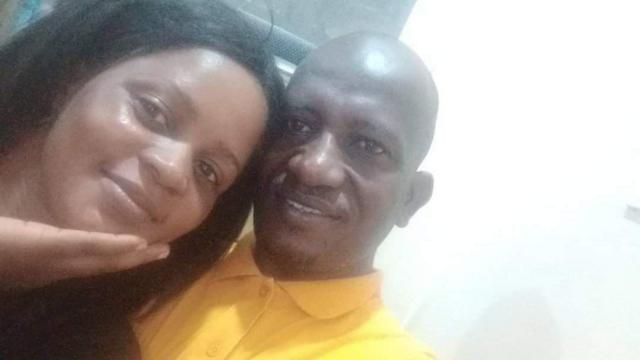A Nigerian man identified as, Olubunmi Abodunde, who murdered his wife, Taiwo, with a skateboard and blamed his loss of control on medication has been sentenced to life imprisonment in the United Kingdom.
Thediscovererng.com recalled that the incident occurred in their Newmarket home, resulting in Taiwo’s death from catastrophic brain injuries in November 2023.
He, however, admitted to killing Taiwo, who suffered “catastrophic brain injuries”, the BBC reports.
The Ipswich Crown Court noted the intensity of the attack that led to her death at their Exning Road residence.
Abodunde faces a minimum of 17 years in prison before being considered for parole.
The court learned that the day before Taiwo’s death, there was a domestic incident resulting in Abodunde’s arrest.
He was under bail conditions prohibiting contact with his spouse.
The next morning, despite these conditions, Abodunde went to the family home to retrieve a mobile phone.
Taiwo, a mother of three, was returning home from her overnight shift as a health care assistant.
Prosecutor Stephen Spence KC told the court that Abodunde was aware of his wife’s shift pattern and CCTV showed she had arrived back at about 09:12.
The court was informed that two officers had attended the property at about 09:20 to speak with Mrs Abodunde about the previous day’s domestic incident.
Spence stated, “Only the defendant now knows what happened. The officers repeatedly knocked on the door and notified them of their presence but got no response or heard any calls for help.”
However, between 40 and 50 “thuds” were heard and it was believed to be Abodunde attacking his wife.
Officers were given clearance by senior police officials to enter the property at 09:45, the court was told.
Spe4nce added, “When they entered the front door, they immediately found the lifeless body of Mrs Abodunde with her skull smashed in.”
Meanwhile, a postmortem examination revealed that Taiwo had suffered “catastrophic brain injuries”.
She also had injuries that were consistent with her body being “stamped on” as well as being hit with a skateboard.
This was found at the property covered in blood and fragments of skull.
The court was told the victim had also been strangled.
Meanwhile, the defendant could be heard sobbing from the dock as Spence addressed the court.
Police forced their way into the home after hearing bangs.
“It seems to me that he was waiting for confrontation. There is no debate that there was not going to be confrontation in my view,” he stated.
Akudolu said Abodunde “was a very well-respected man” both here in the UK and in Nigeria where the couple had previously moved from.
He had been a local councillor in Nigeria and had a local street in the country named after him.
The court heard the couple had a “history of frequent disputes over bills and money” with some “low-level violence” involved.
Akudolu told the court that “not a day will go by that [Abodunde] does not regret the misery” that he has caused.
In his ruling, Judge Levett described Taiwo’s killing as “ruthless, violent, savage and heartless”.
Levett said Abodunde had lied to officers telling them his wife had attempted to attack him with a knife the day before he murdered her, adding that Abodunde also claimed she had tried to beat him, but no evidence was found to substantiate this, the court was told.
While Levett spoke, Abodunde could be seen from the dock with his head in his hands while sobbing.
The Judge added that there had been “no self-defence at all” on Abodunde’s part, saying he had heard “no remorse other than sobs from the dock”.
Following the murder, Suffolk Police referred itself to the Independent Office for Police Conduct due to previous contact with the couple.
It said earlier this month, two officers were advised they were being investigated for gross misconduct over potential breaches of the standards of professional behaviour.
Another officer is under investigation for breaches amounting to misconduct.
An IOPC spokesman said, “This does not mean disciplinary proceedings will necessarily follow. Our investigation remains ongoing.”
BBC




























